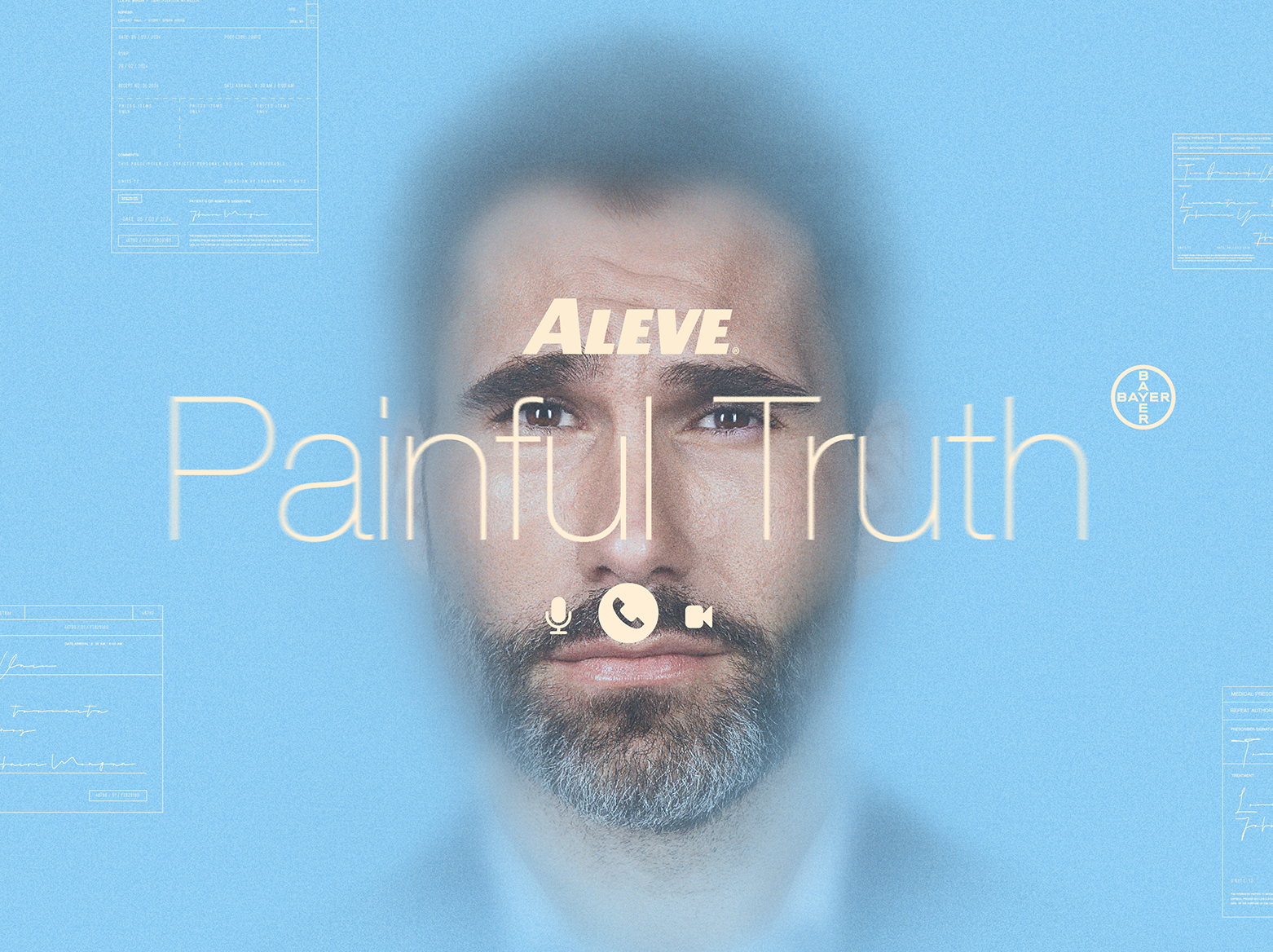Campaign US
The Painful Truth: Aleve campaign underscores opioid addiction risks
The Aleve campaign serves to remind people that the opioid epidemic isn’t over — and there are non-addictive options for pain treatment.
2024-03-26
What if pain doctors warned patients not only about the basic side effects of opioids — like nausea or dizziness — but also informed them of destructive addictive behaviors, too?
That’s the point a campaign — dubbed The Painful Truth — is aiming to get across.
Marketing comms agency MullenLowe partnered with Aleve and Mothers Against Prescription Drug Abuse (MAPDA) to roll out The Painful Truth to touch upon the most devastating side effect of an opioid prescription — addiction.
The campaign serves to remind people that the opioid epidemic continues to rage on and that one American dies every half hour because of an opioid overdose.
In a three-minute long video for the campaign, several patients receive a teleconsultation with a pain expert.
To start, the pain expert asks each of them where their pain stems from — for some, pain is linked to injuries, and for others it’s linked to genetic issues.
“Have opioids ever been a consideration?” the pain expert asks.
“It would be a consideration — if it could get rid of this pain,” one patient responds.
The pain expert then delves into describing some of the side effects of opioids, like nausea, vomiting, lower blood pressure and extra perspiration.
“You might also find yourself looking forward to your next dose — it’s a very effective painkiller,” he says.
However, the list of side effects continues to get worse and more severe as he goes on, pointing out that patients’ behavior may change.
“You could find yourself lying about everything that you do, everywhere you are and everywhere your money is going,” he says. “You might find yourself going through the medicine cabinets of friends and family… You might find yourself in your backyard, swinging as hard as you can at a fence as hard as you can, so you can go to the hospital or ER to get a couple of pills.”
“That was me,” he reveals at the end of the video. “Everything I’ve just told you was my life. These are things that I’ve done. Yes, I’m an expert on opioids because I was an addict once and it almost destroyed my life.”
The video concludes by pointing out that “there are non-addictive options for your pain.”
The campaign also includes a dedicated website, which features personal commentary from other people who have survived opioid addiction, as well as a mother and a retired fire captain and paramedic who share their experiences. It also includes links and resources to non-addictive pain relief options and supportive care.
“Two big contributing factors to opioid use disorder are lack of education around the potential negative consequences of opioid use and the enduring stigma around addiction,” said Mary Bono, co-founder and CEO of MAPDA, in a statement.
Jeff Jarrett, chief marketing officer at Bayer Consumer Health, North America, added that Aleve could serve as a non-addictive pain treatment option for many patients.
“Patients should always talk to their doctors to learn about their pain relief options based on their diagnoses,” he stated.
The campaign was launched shortly after the Centers for Disease Control and Prevention released new data on 2022 drug overdose deaths. The latest numbers show that drug overdose deaths reached a record high that year, but also rose less sharply than in previous years — suggesting the crisis may be flattening a bit.
Still, the emergence of synthetic opioids like fentanyl and xylazine has made curbing the epidemic more difficult.
This article was originally posted on Campaign US here and MM+M here.
